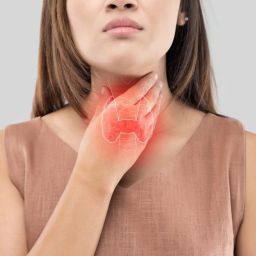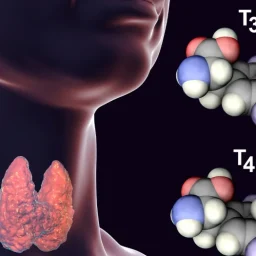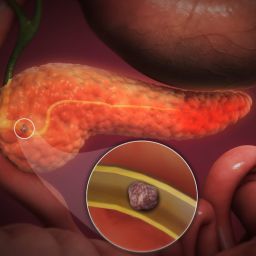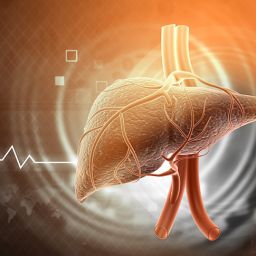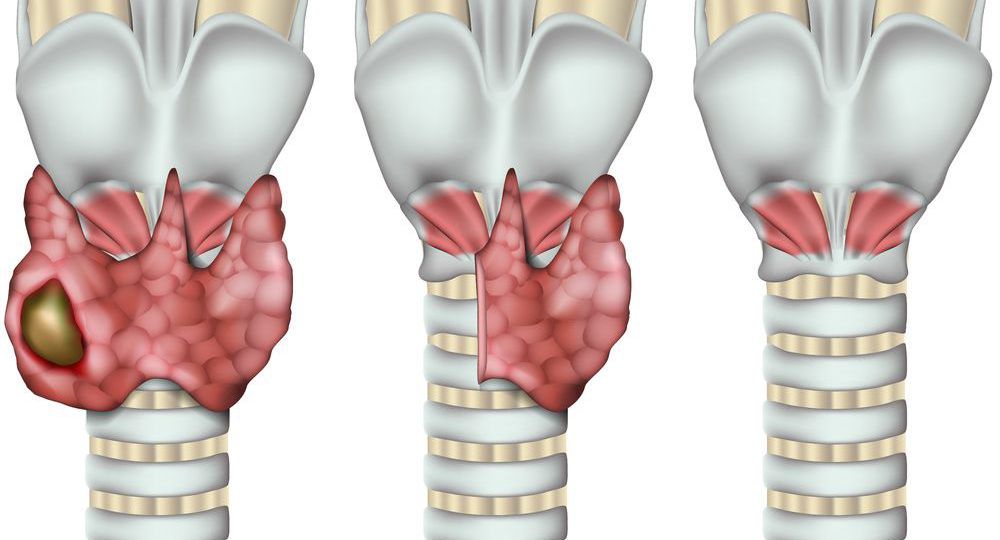
Who is Most at Risk for Developing Thyroid Cancer?
Thyroid cancer is a relatively rare form of cancer that affects the thyroid gland, a butterfly-shaped organ located in the neck that plays a crucial role in regulating metabolism through the production of thyroid hormones. Despite being one of the least common cancers, the incidence of thyroid cancer has been rising in recent decades. Although the exact cause of thyroid cancer remains unclear, certain factors can increase an individual’s risk of developing the condition. Identifying those at higher risk is essential for early detection and effective treatment.
In this article, we will explore the various risk factors associated with thyroid cancer, including genetic, environmental, and lifestyle-related factors, and discuss who is most at risk for this disease. By understanding these risk factors, individuals can be better informed about their health and take proactive measures to monitor and manage their thyroid health.
1. Gender: The Role of Sex in Thyroid Cancer Risk

One of the most significant risk factors for thyroid cancer is gender. Studies have shown that women are more likely to develop thyroid cancer than men. In fact, women are approximately three times more likely to be diagnosed with thyroid cancer than men, particularly in the younger population.
The reasons behind this gender disparity are not entirely understood, but it is believed that hormonal factors may play a role. Estrogen, a key female hormone, has been suggested to influence thyroid cell growth, potentially increasing the risk of cancer. Additionally, the higher incidence of thyroid cancer in women may be linked to hormonal changes that occur during pregnancy or menopause.
Although the risk is higher in women, thyroid cancer can still affect men, and certain types of thyroid cancer, such as anaplastic thyroid cancer, may be more aggressive in men than women.
2. Age: The Influence of Age on Thyroid Cancer Risk
Age is another important risk factor for thyroid cancer. While thyroid cancer can affect individuals of any age, it is most commonly diagnosed in people between the ages of 20 and 60. Younger individuals, especially those in their 20s and 30s, tend to develop papillary thyroid cancer, which has a relatively good prognosis.
However, the risk of developing thyroid cancer increases with age. Older individuals, especially those over the age of 60, may be at higher risk for more aggressive forms of thyroid cancer, such as anaplastic thyroid cancer. This type of cancer is rare but tends to have a poorer prognosis and is often diagnosed in older adults.
As individuals age, the thyroid may undergo changes that increase the likelihood of abnormal cell growth, leading to the development of cancer.
3. Family History and Genetic Factors
A family history of thyroid cancer is one of the most significant genetic risk factors for developing the disease. If you have a first-degree relative (parent, sibling, or child) who has been diagnosed with thyroid cancer, your risk of developing the condition may be higher. Genetic mutations and inherited conditions, such as familial medullary thyroid cancer (FMTC), can also increase the likelihood of thyroid cancer.
Additionally, certain genetic syndromes can predispose individuals to thyroid cancer. These include:
- Multiple endocrine neoplasia (MEN) type 2: This genetic condition can increase the risk of developing medullary thyroid cancer.
- Cowden syndrome: A rare genetic disorder that can increase the risk of thyroid cancer, along with other cancers such as breast and endometrial cancers.
- Familial adenomatous polyposis (FAP): A genetic condition that increases the risk of multiple cancers, including thyroid cancer.
Genetic testing and counseling may be recommended for individuals with a family history of thyroid cancer or those with known genetic conditions that increase the risk of developing thyroid cancer.
4. Radiation Exposure and Environmental Factors
Exposure to radiation is one of the most well-established environmental risk factors for thyroid cancer. Individuals who have been exposed to radiation, especially during childhood, may have an increased risk of developing thyroid cancer later in life. This exposure can result from:
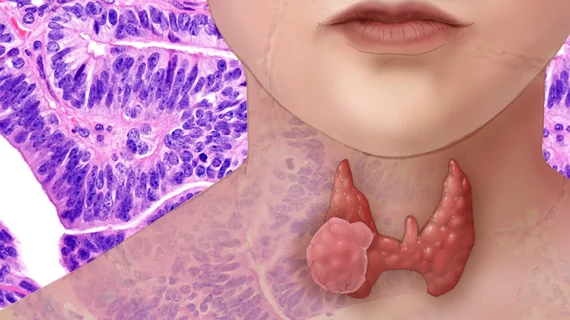
- Radiation therapy for head and neck cancers
- Environmental radiation exposure, such as during nuclear accidents (e.g., the Chernobyl disaster)
- Radiation exposure from medical imaging or diagnostic procedures in the past
The thyroid is particularly sensitive to radiation, and exposure can damage the thyroid cells, increasing the risk of cancer. While the link between radiation exposure and thyroid cancer is well-established, it is important to note that modern radiation therapies are often carefully managed to minimize risk.
5. Diet and Lifestyle Factors
Certain dietary and lifestyle factors may influence the risk of developing thyroid cancer. Some research has suggested that iodine deficiency can increase the risk of developing thyroid cancer, particularly in regions where iodine is not routinely added to salt. However, iodine deficiency is rare in developed countries due to the widespread use of iodized salt.
On the other hand, excessive iodine intake through dietary supplements can also affect thyroid health. Studies have shown that individuals with higher iodine intake may have an increased risk of certain thyroid disorders, though the direct link between excessive iodine and thyroid cancer is still being researched.
In addition to iodine intake, other factors such as obesity, smoking, and a sedentary lifestyle have been linked to an increased risk of developing thyroid cancer. Obesity, in particular, has been associated with a higher risk of developing more aggressive forms of thyroid cancer.
6. Hormonal Factors and Pregnancy
Hormonal changes during pregnancy and menopause may play a role in the development of thyroid cancer, particularly in women. During pregnancy, the body undergoes significant hormonal changes that can influence thyroid function. For instance, human chorionic gonadotropin (hCG), a hormone produced during pregnancy, can stimulate the thyroid gland and potentially promote the growth of thyroid cells.
Additionally, some studies suggest that oral contraceptives and hormone replacement therapy (HRT) may have an impact on thyroid health, though the relationship between these factors and thyroid cancer risk is still being studied. Women who have had multiple pregnancies or those with a history of gestational hyperthyroidism (thyroid problems during pregnancy) may also have a slightly elevated risk of developing thyroid cancer.
7. Gender-Specific Risk Factors
Thyroid cancer in men tends to be less common, but when it occurs, it is often more aggressive. Medullary thyroid cancer (MTC) is more common in men than women and is associated with genetic mutations. Men with a family history of thyroid cancer or certain genetic syndromes may be at an increased risk of developing MTC.
For women, thyroid cancer risk tends to increase with age, particularly after menopause, when hormonal changes may contribute to an elevated risk of cancer. Some studies have suggested that postmenopausal women may have a higher risk of developing thyroid cancer due to changes in estrogen levels and other factors related to aging.
Thyroid cancer is a relatively rare condition, but it is important to understand the various risk factors that can increase an individual’s likelihood of developing the disease. While gender, age, family history, radiation exposure, diet, and lifestyle choices all play a role in determining risk, not all individuals with these risk factors will develop thyroid cancer. Early detection and awareness of these risk factors can lead to timely diagnosis and more effective treatment options.

